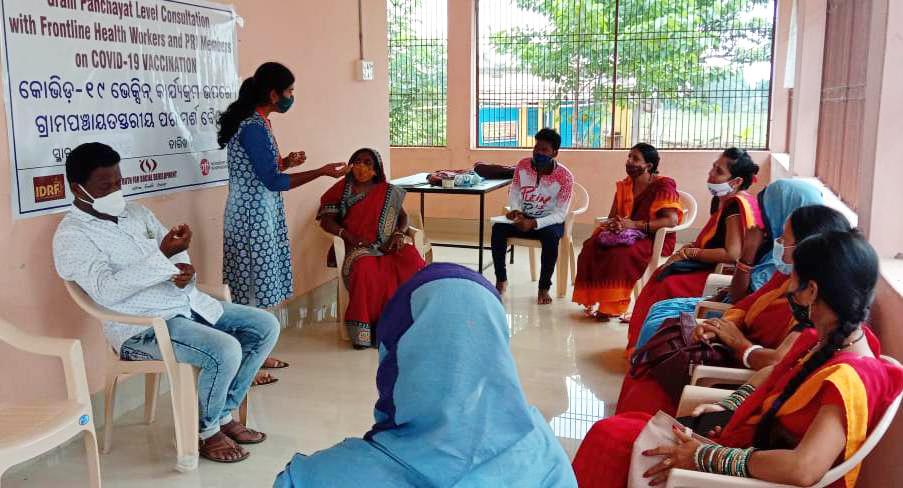The role of civil society in anti-corruption legislative advocacy
When carried out by civil society organisations (CSOs), the strategy of legislative advocacy plays a crucial role in the approval and repeal of laws. Transparencia por Colombia (TpC) conducted such a strategy to incorporate anti-corruption measures into two key bills for the country: the National Development Plan 2022–2026 (NDP) and the Health Reform. The first defined the guidelines and priorities for President Gustavo Petro’s four-year term; however, it must complete the bill process to become a law. The second aimed to make fundamental changes to the country’s health system.
TpC’s advocacy efforts had mixed results and they faced many challenges. Although most of their recommendations were not adopted for the NDP, their efforts led to the approval of the National Anti-Corruption Strategy – a measure aimed at addressing corruption across all sectors and levels. Despite having limited influence on the drafting of the Health Reform bill, TpC drew attention to the importance of incorporating an anti-corruption approach into health-sector discussions. They determined that these measures were vital for the proper functioning of the system and safeguarding Colombians’ right to health.
Identifying windows of opportunity and evaluating the success of endeavours
TpC’s experience and research identified eight windows of opportunities to influence the legislative process – across the preparatory, discussion, and post-legislative stages – and adopt the most suitable strategies and tools to achieve advocacy goals. It was established that:
- Engaging in every window of opportunity that presents itself is not necessarily an efficient strategy, and often the results are not proportional to the effort taken. Perhaps the window that has the most potential for direct impact is the technical support and expertise offered by an organisation, as it establishes a more direct dialogue.
- Bilateral meetings and technical assistance can be constructive opportunities for advocacy. However, these also pose risks. CSOs may be instrumentalised by public officials looking to advance their own agendas, considered as supporting a particular senator or public representative, or misunderstood as lobbyists.
- Successful advocacy efforts are not measured only by subsequent changes to bills. Where it has been identified that a bill has the potential to create new corruption risks or aggravate existing ones, then its rejection can also be considered a success.
- Opportunities for advocacy may be less when engaging in collective dialogue spaces organised by other CSOs, as such spaces are limited to the parameters dictated by others.
Exercising influence in the legislative process
The following recommendations – for three distinct groups – have the objective of advancing the general interest and are in accordance with a principle of responsibility on the part of those involved.
Civil society organisations
Sharing advocacy activities and interactions
When interacting with decision-makers, anti-corruption CSOs should be transparent and proactively publish details of such dealings on their website and via social media. Examples can include: the objectives of their advocacy activities; those members of Congress and public officials they interact with and/or provide technical assistance to; and their contributions to legislative discussion. By sharing information, CSOs demonstrate their commitment to transparency, and such openness may encourage citizens to engage in legislative monitoring.
Determining ‘red lines’ for advocacy activities
To safeguard their autonomy and maximise advocacy efforts, CSOs should define their ‘red lines’ – issues which they are not prepared to compromise on. This approach will guide CSOs on when they should distance themselves from a particular issue or actor. Defining concepts and premises that cannot be reconciled allows CSOs to initiate conversations and advocacy actions with legislators, government officials, and other CSOs from a common base upon which they can then build. Also, anti-corruption CSOs should avoid bilateral meetings with legislators or public officials under investigation or sanctioned for corruption.
Identifying the legislative agenda
To focus on advocacy efforts, anti-corruption CSOs should determine the legislative agendas of legislators, the government, relevant public entities, and other CSOs. Such activity should include sector-based and structural bills – as with the Health Reform and the NDP – but specialise in specific topics to optimise resources and position themselves as an allied actor.
Leveraging technical research
It is important to avoid becoming involved in political discussions and stances, so technical research should support anti-corruption legislative advocacy – for example, the potential corruption risks in proposed bills and the need for anti-corruption measures. This would allow anti-corruption CSOs to approach a greater number of stakeholders in a multi-party scenario.
Congressmen, members of government, and other legislative initiative actors
Prioritising bills
The focus of legislators and government officials on specific bills has the benefit of more effective mainstreaming of anti-corruption efforts. Such a strategic approach must include an analysis of: the number of bills in process in each chamber; the public entities involved; the legislative procedure each bill must follow; the legislators supporting each bill; and the CSOs that can contribute to strengthening each bill from an anti-corruption perspective.
Fostering strategic alliances with CSOs
Such alliances can develop joint proposals for cooperation programmes and projects, and enhance the anti-corruption knowledge of Congress members. Due to the recent changes and restrictions in international cooperation, there are currently more opportunities for proposals to be implemented throughout CSOs and public bodies.
Governments, cooperation agencies, and donors
The development of prioritised cooperation programmes and projects for legislative advocacy is key for ensuring state legality, preserving a balance between the public branches, fortifying the democratic system, and cultivating stability and citizen confidence. It is recommended that the donor community funds opportunities to support CSOs in the following areas:
Anti-corruption legislative advocacy
This seeks to strengthen the anti-corruption framework and mitigate corruption risks in sector-based and structural bills. Efforts to influence legislators on specific bills does not necessarily conflict with international cooperation guidelines on lobbying, nor should they prevent CSOs from receiving funding.
Strategic litigation and post-legislative monitoring
Funding opportunities should be created for initiatives that ensure implementation of anti-corruption laws and advocate for the elimination of those that present risks or obstacles in the efforts against corruption. Promoting opportunities for anti-corruption CSOs to train other CSOs involved in legislative advocacy has the benefit of the latter gaining the knowledge and tools to integrate an anti-corruption approach into their work.


